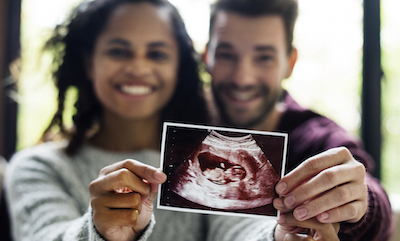Researchers Win $1.2M NSF Grant to Improve Reproductive Health with AI.
 A multidisciplinary team of researchers from Boston University and Harvard University is working to address reproductive health and fertility challenges using machine learning and artificial intelligence, with the help of a $1.2 million, four-year grant funded by the National Science Foundation (NSF) through its Smart and Connected Health (SCH) program.
A multidisciplinary team of researchers from Boston University and Harvard University is working to address reproductive health and fertility challenges using machine learning and artificial intelligence, with the help of a $1.2 million, four-year grant funded by the National Science Foundation (NSF) through its Smart and Connected Health (SCH) program.
The BU-led project will use distributed, privacy-preserving algorithms trained using multiple data sources, combining information from self-administered surveys, electronic health records, and personal health records to produce highly accurate personalized predictions and prescriptions or recommendations, enabling individuals and their physicians to make the most appropriate, individualized health care decisions.
The team of principal investigators (PIs) includes Lauren Wise, professor of epidemiology at the School of Public Health and PI of the SPH-based Pregnancy Study Online (PRESTO).
“Machine learning has the potential to identify novel determinants of subfertility in large prospective cohort studies like PRESTO,” Wise says. “Developing tools for individuals to quantify their probability of conception based on personal inputs is paradigm-shifting.”
Harvard University is the subaward recipient on this grant, and brings the expertise of co-PI and alum Shruthi Mahalingaiah (SPH’15), assistant professor of environmental reproductive and women’s health at the Harvard T.H. Chan School of Public Health, an adjunct at the BU School of Medicine, and director of the multi-institutional Program in Environment and Women’s Health (which includes Boston Medical Center, the BU School of Medicine, the BU College of Engineering, and Massachusetts General Hospital).
“Collaboration for improving discovery and improving care for women across the lifecourse is critically important,” Mahalingaiah says. “Merged datasets including self reporting, lifestyle, and exposures, clinical-grade data, and data collected from wearable devices will provide personalized insights so that women can be empowered to understand information on the health of their bodies and make the best choices for their health and futures.”
The research team will develop fertility/family planning models, including predicting pregnancy, the success of an IVF cycle, the presence of specific reproductive health issues affecting fertility, and making related health care recommendations. Predictive models will identify the most important factors associated with reduced fertility or assisted reproductive technologies (ART) success rates, which could pinpoint specific lifestyle habits, environmental factors, and other key drivers of reduced positive outcomes that can inform health policy recommendations. A key focus will be on ovulation disorders, including Polycystic Ovary Syndrome, which are the leading cause of female infertility and are associated with an increased risk of chronic diseases, such as diabetes and cardiovascular disease.
The other principal investigators are: Yannis Paschalidis, BU professor of electrical and computer engineering, systems engineering, and biomedical engineering, an expert in decision theory, networks, machine learning, optimization, and computational biology/medicine; and Alex Olshevsky, BU professor of electrical and computer engineering and systems engineering, an expert in distributed optimization methods.
“It’s one thing to be able to predict one thing will happen, but the important question is, what do you do? How do you improve the condition of the individual?” Paschalidis says. “By bringing together this truly multidisciplinary collaboration of clinicians and engineers, this project brings the deep, diverse expertise and requisite resources for advancing the health and wellbeing of women.”